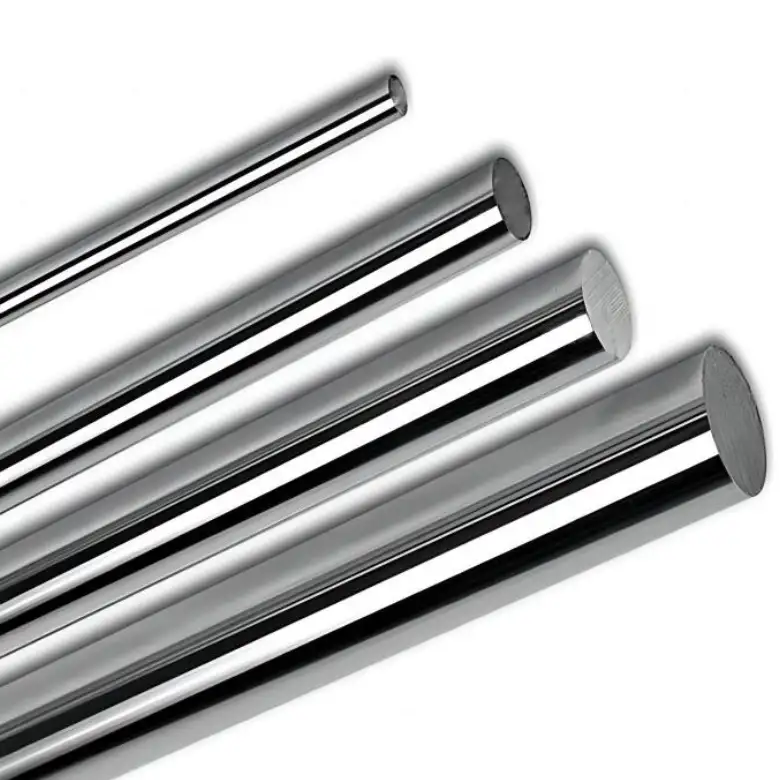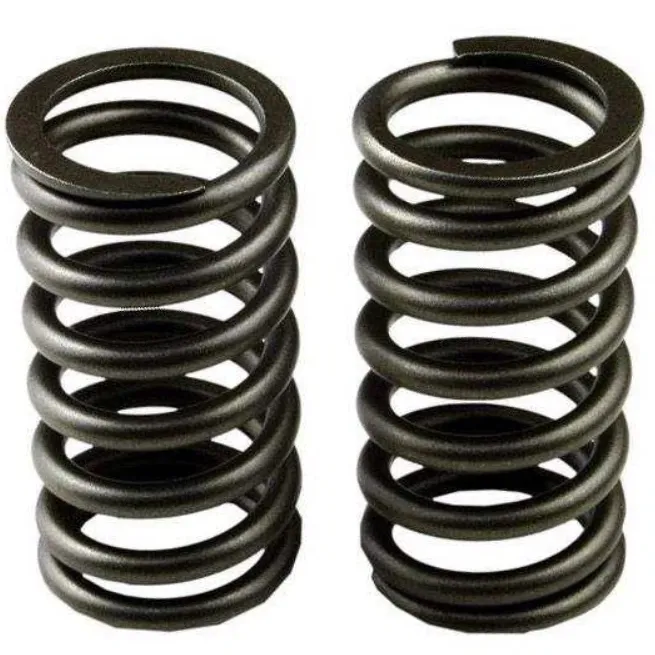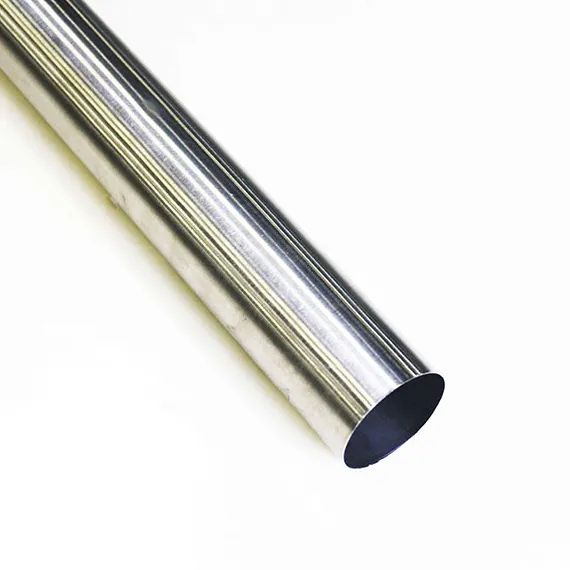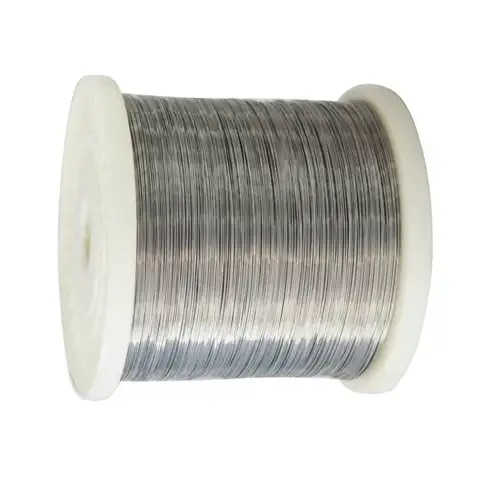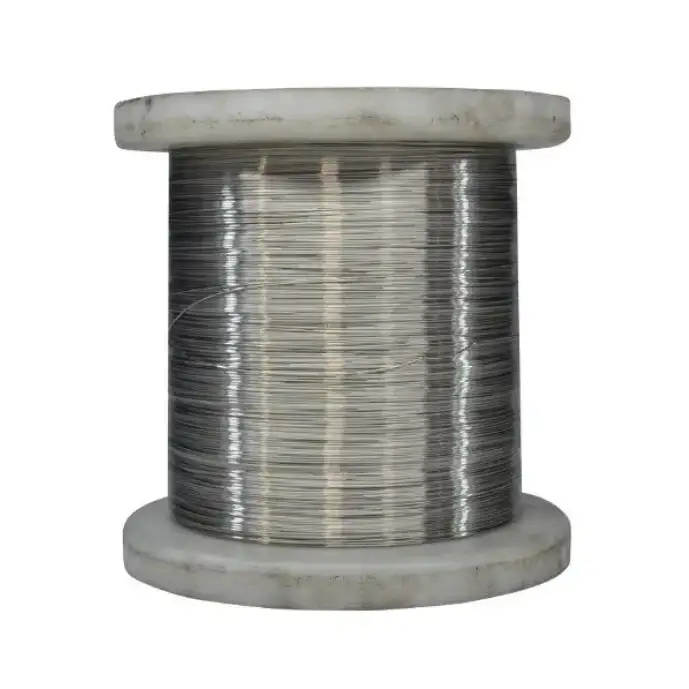L'INCONEL® Alloy 600 è una superlega di nichel-cromo-ferro rinomata per la sua forza, resistenza all'ossidazione e alla corrosione, dalla criogenia fino a ~2000 °F (1093 °C). A MWleghe, offriamo Lega 600 personalizzata in lastre, tubi, barre, lamiere e materiali di consumo per saldatura, su misura per le vostre applicazioni industriali nei settori aerospaziale, della produzione di energia, chimico e nucleare.
Che cos'è la Lega 600?
La Lega 600 (UNS N06600, DIN 2.4816) è una superlega a base di nichel contenente ≥72% di nichel, 14-17% di cromo, 6-10% di ferro e altri elementi in tracce. L'elevato contenuto di cromo aumenta la resistenza all'ossidazione ad alta temperatura, mentre il contenuto di nichel garantisce un'eccellente resistenza in ambienti riducenti.
specifiche
| Categoria | Proprietà | Valore / Descrizione | Osservazioni |
|---|---|---|---|
| Composizione chimica | Nichel (Ni) | ≥ 72.0% | Costituente primario |
| Cromo (Cr) | 14.0 - 17.0% | Resistenza all'ossidazione | |
| Ferro (Fe) | 6.0 - 10.0% | Equilibrio | |
| Carbonio (C) | ≤ 0,15% | ||
| Manganese (Mn) | ≤ 1.00% | ||
| Zolfo (S) | ≤ 0,015% | ||
| Silicio (Si) | ≤ 0,50% | ||
| Rame (Cu) | ≤ 0,50% | ||
| Proprietà meccaniche | Resistenza alla trazione (temperatura ambiente) | ≥ 550 MPa (80 ksi) | Valori minimi; varia in base alla forma/al trattamento termico |
| Resistenza allo snervamento (offset 0,2%, RT) | ≥ 240 MPa (35 ksi) | ||
| Allungamento (in 50 mm, RT) | ≥ 30% | ||
| Durezza (ricotto) | ≤ 90 HRB (Rockwell B) | Gamma tipica: 65-85 HRB | |
| Proprietà fisiche | Densità | 8,47 g/cm³ (0,306 lb/in³) | |
| Intervallo di fusione | 1354 - 1413°C (2470 - 2580°F) | ||
| Calore specifico (20°C) | 444 J/kg-K (0,106 Btu/lb-°F) | ||
| Conduttività termica (100°C) | 14,9 W/m-K (103 Btu-in/hr-ft²-°F) | Aumenta con la temperatura | |
| Resistività elettrica | 1,18 μΩ-m (708 Ω-cir mil/ft) | ||
| Modulo di elasticità (RT) | 214 GPa (31 x 10⁶ psi) | ||
| Proprietà termiche | Temperatura di servizio continua | Fino a 1175°C (2150°F) (ossidante) | Limitato dalla resistenza all'ossidazione |
| Sollecitazione Resistenza alla rottura | 1000h @ 815°C (1500°F): ~70 MPa (~10 ksi) 1000h @ 980°C (1800°F): ~15 MPa (~2,2 ksi) |
Valori tipici; diminuisce con la temperatura/il tempo | |
| Caratteristiche principali | Resistenza alla corrosione | Eccellente resistenza a: - Ossidazione, Carburazione, Corrosione da stress da cloruro - Corrosione da acqua dolce/vapore, alcali, composti organici |
Funziona bene in ambienti acidi (eccetto gli acidi riducenti) |
| Resistenza all'ossidazione | Eccezionale fino a 1175°C (2150°F) | Forme di protezione della scala Cr₂O₃ | |
| Standard comuni | ASTM | B166 (barre/barre), B167 (tubi), B168 (piastre/fogli/nastri), B564 (pezzi fucinati) | |
| ASME | SB-166, SB-167, SB-168, SB-564 | Codice delle caldaie e dei recipienti a pressione | |
| AMS | 5681 (filo), 5680 (barra) | Specifiche dei materiali aerospaziali | |
| EN / DIN | 2.4816 / NiCr15Fe | Standard europei | |
| Designazione UNS | N06600 | Sistema di numerazione unificato |
Applicazioni
La lega 600 eccelle in molti settori:
-
Aerospaziale: rivestimenti di scarico, guarnizioni della turbina, barattoli di combustione.
-
Trattamento chimico: scambiatori di calore, condensatori, riscaldatori.
-
Energia e nucleare: tubi del reattore, serpentine del generatore di vapore.
-
Forni per il trattamento termico: storte, muffole, vassoi.
-
Polpa e carta, alimenti: apparecchiature per evaporatori.
Perché scegliere la lega 600?
La lega offre:
-
Eccellente resistenza all'ossidazione fino a ~2000 °F.
-
Elevata resistenza mantenuta grazie alla lavorazione a freddo.
-
Immunità alle cricche da tensocorrosione da ioni cloruro.
-
Non magnetico e saldabile tramite TIG/MIG/SMAW.
-
Durata a fatica e a scorrimento.
Produzione e formatura
La lega 600 può essere lavorata a caldo a 1600-2250 °F; evitare 1200-1600 °F per evitare la perdita di duttilità. La lavorazione a freddo rafforza la lega, mentre la ricottura (1850-1900 °F) la ammorbidisce senza eccessiva crescita dei grani. La saldatura segue le pratiche standard con cariche compatibili con l'Inconel (ERNiCr-3, ERNiCrFe-3).
Confronto con leghe simili
Stile di frase breve mescolato:
| Proprietà | Lega 600 | Lega Inconel 625 | Inconel Lega 718 |
|---|---|---|---|
| Contenuto di Ni | ≥72% | ≥58% | 50-55% |
| Contenuto di Cr | 14-17% | 20-23% | 17-21% |
| Resistenza alla corrosione | Eccellente | Eccellente (pitting/ossidazione) | Buono |
| Resistenza alle alte temperature | Buono fino a 2000 °F | Molto buono | Eccellente |
| Resistenza SCC | Eccellente | Eccellente | Molto buono |
La lega 600 è la migliore per la resistenza combinata alla corrosione e alla temperatura quando la forza e la saldabilità sono importanti.
confronto globale dei prezzi
| Regione | Forma / Grado | Prezzo (USD/MT) | Prezzo (USD/kg) |
|---|---|---|---|
| Europa | Foglio (Germania, ex fabbrica) | $36.864 /MT | ~$36,86/kg |
| APAC (Giappone) | Foglio (Osaka, ex fabbrica) | $43.912 /MT | ~$43,91/kg |
| MEA (EMIRATI ARABI UNITI) | Foglio (Dubai, ex fabbrica) | $42.832 /MT | ~$42,83/kg |
| Nord America | Tubo (ASTM B829) | $6-12 /kg | - |
| Spot USA | Lega 600 generale alla rinfusa | $35,98 /kg | - |
| Cina (Alibaba) | Piastra / Foglio (piccole quantità) | $35-44 /kg | - |
| India | Lega 600 barre/piastre | ₹2.500/kg (~$30/kg) | ~$30/kg |
| Vendita al dettaglio globale | Tubo / Tubo | $18-52 /kg (FOB Cina) | - |
| Forma | Regione / Fornitore | Fascia di prezzo (USD/kg) | Note e fonti |
|---|---|---|---|
| Piastra/Foglio | Cina | $35-44/kg | MOQ standard (2-100 kg) |
| Vendita al dettaglio negli Stati Uniti | $36,04/kg | ||
| Europa | |||
| Bar/Rod | Cina | $15-20/kg | |
| Regno Unito/Europa (barra ASTM B166) | $26-35/kg | ||
| India | ₹2500/kg (~$30/kg) | ||
| Bobina/striscia | India (ASTM B168 coil/strip) | - | Solo le specifiche |
| Cina | $20-50/kg | Dati Alibaba | ||
| Filo | Cina | $25-35/kg (sconti sul lotto) | Lega Haosai | |
| Cina | $20-35/kg | ALibaba misc. |
📌 Note e approfondimenti:
-
Europa (Germania) offre lastre intorno a $36,9 /kg.
-
Mercati giapponesi e del Medio Oriente traccia più alta a ~$43-44 /kg .
-
Vendita al dettaglio negli Stati Uniti è vicino a $36 /kg ; I tubi in specifici elenchi ASTM possono essere più bassi.
-
Cina i prezzi dei piccoli lotti variano da $35-44 /kg, con tubi alla rinfusa a $18-52 /kg.
-
Mercato indiano si vende a circa $30 /kg (₹2.500) .
Domande frequenti
-
Cosa rende la Lega 600 resistente alle cricche da tensocorrosione indotte dai cloruri?
La lega 600 contiene almeno 72 nichel %, che riduce significativamente la suscettibilità alle cricche da stress-corrosione da cloruro. In effetti, è "virtualmente immune" da questo tipo di cedimento in condizioni tipiche.. -
Fino a quale temperatura la Lega 600 può mantenere la sua resistenza all'ossidazione?
Resiste in modo affidabile all'ossidazione in ambienti ciclici ad alta temperatura fino a circa 2000 °F (1093 °C). Questo lo rende ideale per i componenti dei forni, come le storte, i vassoi e i tubi radianti. -
La lega 600 può essere saldata senza perdita di prestazioni?
Sì - L'alluminio 600 è facilmente saldabile con i metodi TIG, MIG e SMAW. I risultati migliori si ottengono con l'uso di un riempimento a base di nichel (ad esempio, ERNiCr-3) e una corretta ricottura post-saldatura per evitare la degradazione della saldatura.. -
La Lega 600 resiste alla carburazione e all'attacco dei solfuri?
Ha Buona resistenza alla carburazioneche lo rende adatto alle atmosfere dei forni di carburazione.. Tuttavia, deve essere protetto dall'esposizione prolungata a gas ricchi di zolfo ad alte temperature, in quanto può verificarsi una solfatazione . -
Quali prestazioni meccaniche posso aspettarmi dalla Lega 600?
Allo stato ricotto, la resistenza alla trazione tipica è circa 550-700 MPa, resistenza allo snervamento tra 170-345 MPa, con buona duttilità (allungamento di 35-55 %). La sua resistenza alla fatica, soprattutto nelle applicazioni ad alto numero di cicli, lo rende adatto ad ambienti con carichi dinamici.

